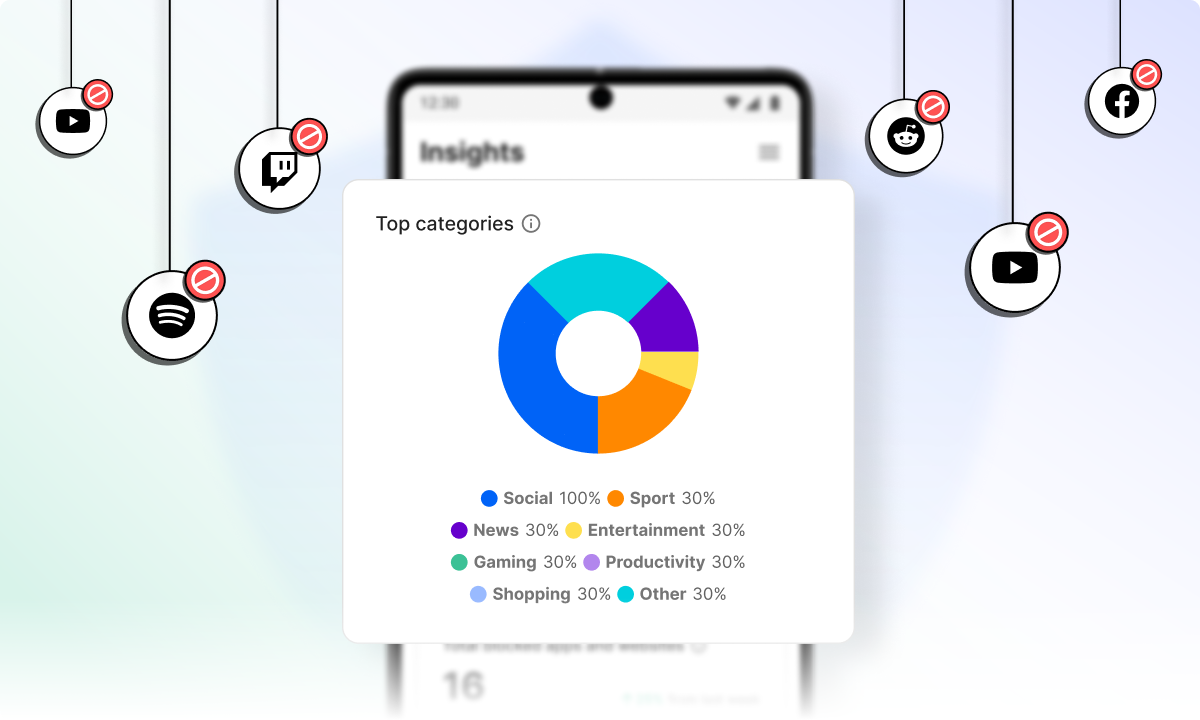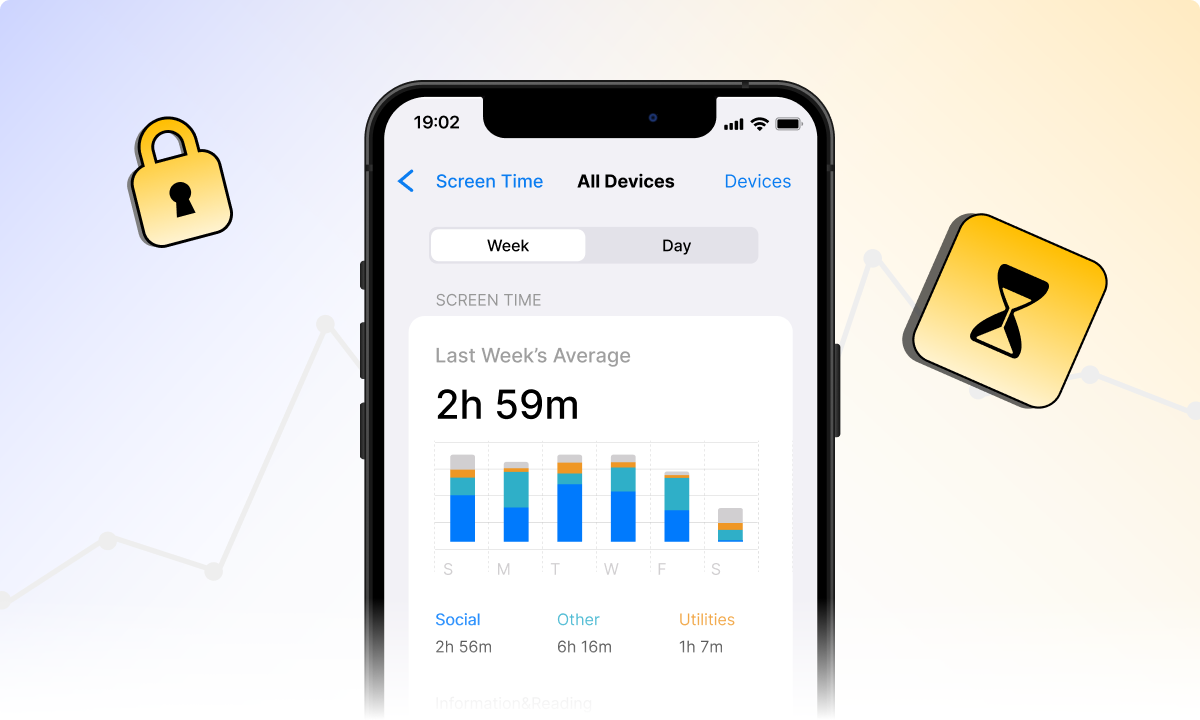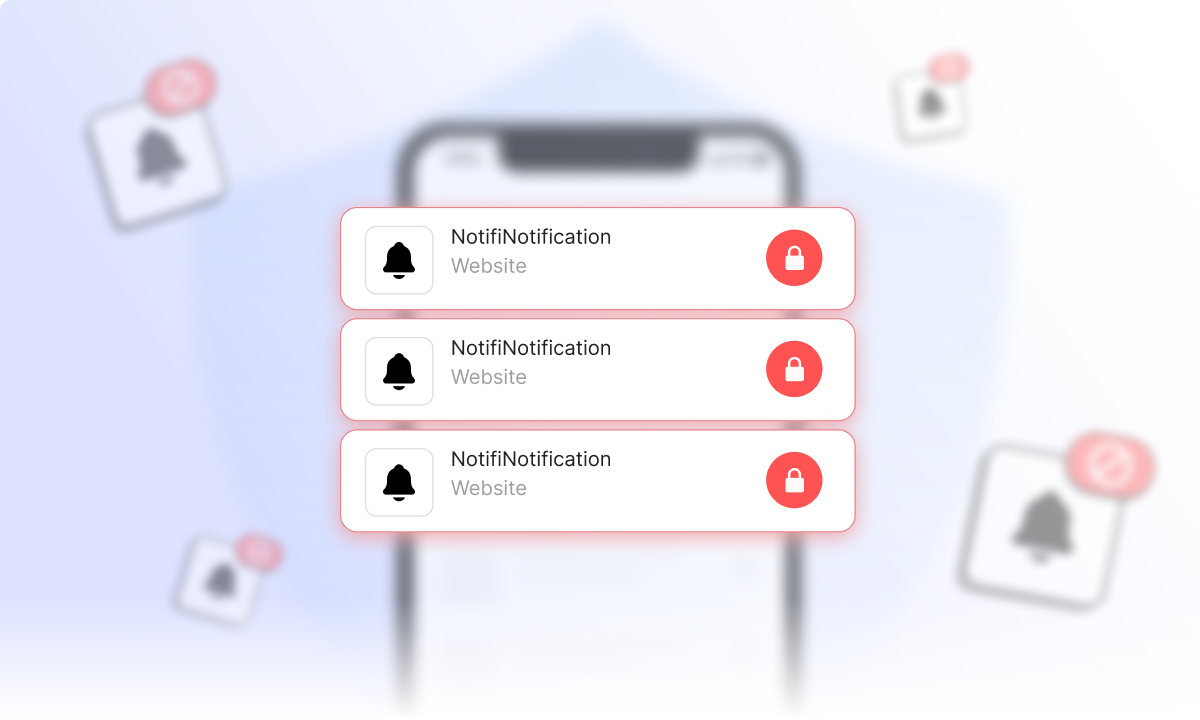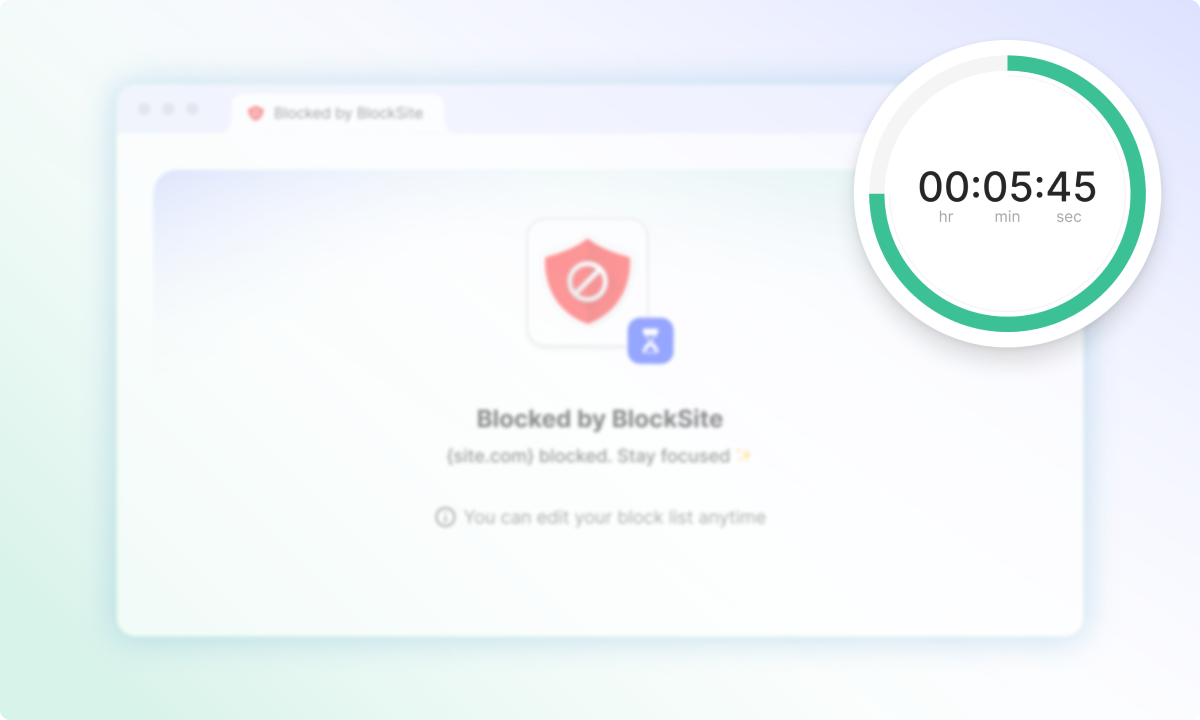Confronting the challenges of balancing screen time has become a common experience, as smartphones increasingly play an essential and ubiquitous role in our daily lives. The question, “How much time should I spend on my phone?” is more than just a query; it’s the reality of our struggle to balance connectivity with real-life experiences. This balance is crucial, not just for our mental and physical well-being but also for maintaining meaningful relationships and personal growth.
Our phones, while being powerful tools for communication and information, can also become sources of constant distraction and stress. The challenge lies in using these devices to our advantage without letting them dominate our daily lives. It’s about making conscious choices – choosing to engage with the world around us, to be present in the moment, and to use technology as a tool that enhances, rather than detracts from, our real-world experiences.
Take a look at these alarming figures:
| Data | Average Screen Time | Source |
| Global Average Screen Time | 6 hours and 58 minutes | Exploding Topics |
| Average Daily Screen Time in the US | 7 hours and 4 minutes | DemandSage |
| Social Media Usage Globally | 2 hours and 27 minutes | The Tech Report |
| Screen Time Among Tweens | 3 hours and 4 minutes | Elite Content Marketer |
The latest data reveal a significant trend in screen time usage globally:
- The global average screen time is nearly 7 hours per day, indicating a significant reliance on digital devices in our daily lives.
- In the US alone, the average daily screen time slightly surpasses the global average, reaching 7 hours and 4 minutes.
- Social media usage contributes substantially to this figure, with users globally spending over 2 hours and 27 minutes daily on these platforms.
Screen time among tweens is particularly noteworthy, with an average of 3 hours and 4 minutes per day, suggesting the importance of establishing healthy digital habits from an early age.
Why Can Screen Time Be Bad for You?
The impact of prolonged screen time on our well-being is a topic of growing concern. While technology offers incredible benefits, excessive use of screens can lead to several negative health outcomes. Understanding these can help us make more informed decisions about our screen habits.
Physical Health Impacts
- Eye Strain and Discomfort: Staring at screens for extended periods can cause dry eyes, blurred vision, and general eye discomfort, a condition often referred to as computer vision syndrome.
- Sleep Disruption: The blue light emitted by screens can interfere with our natural sleep patterns, making it harder to fall asleep and reducing sleep quality.
- Posture Problems: Constant use of devices can lead to poor posture, resulting in back and neck pain, often termed as ‘text neck’.
Mental Health Concerns
- Increased Stress and Anxiety: Overuse of screens, especially for social media and news, can lead to heightened stress and anxiety levels.
- Reduced Attention Span: Constant digital stimulation can decrease our ability to focus on tasks for extended periods.
- Social Isolation: While digital devices connect us virtually, they can also lead to a sense of isolation and loneliness, as they often replace face-to-face interactions.
Balancing screen time is not just about reducing the hours spent staring at a device; it’s about understanding and mitigating these potential risks. By being aware of these effects, we can take proactive steps to manage our screen time more effectively, ensuring that our use of technology remains beneficial and does not detract from our overall health and well-being.
Healthy Phone Screen Time: What Is a Good Amount of Screen Time Per Day?
So how many hours should you spend on your phone a day? Determining the right amount of time to allot for your device can be a nuanced process, as it varies greatly depending on individual lifestyles, needs, and responsibilities. However, setting a guideline for yourself can lead to a more balanced and fulfilling daily routine.
Considerations for Phone Usage
- Purpose of Use: Reflect on why you are using your phone. Is it for work, education, or leisure? Prioritizing necessary and productive use over aimless browsing can drastically change your screen time dynamics.
- Personal Well-being: Pay attention to how your phone usage affects your mental and physical health. If you notice signs of strain, stress, or sleep disruption, it might be time to cut back.
- Quality over Quantity: Focus on having a healthy phone screen time. Engaging in meaningful activities, such as learning something new or staying in touch with loved ones, is more beneficial than passive scrolling.
How Can You Reduce Your Phone Time?
1. Harnessing BlockSite’s Power
BlockSite, a versatile tool for managing digital habits and blocking websites, offers features like Schedule Mode and Focus Mode. These functionalities allow users to set specific times for phone use, ensuring a balanced approach to screen time.
Schedule Mode: Plan your phone usage, aligning it with your daily routine. Aside from the browser extension, this feature is also available for both Android and iOS devices.

Focus Mode: This particular mode helps concentrate on tasks without distractions.

Insights: Understand your digital habits, whether it’s social media or news consumption. Take note that this specific feature is accessible when you’re running the app on Android or using the browser extension.
2. Set Specific Goals for Phone Use
Determine clear objectives for your phone usage. For instance, decide to use your phone only for essential communications, specific work-related tasks, or a limited amount of leisure browsing. By setting goals, you can avoid aimless scrolling and focus on purposeful use.
3. Establish No-Phone Zones
Designate certain areas of your home or office as no-phone zones. For example, make your dining area a place for family interactions without the distraction of phones. This helps in creating a physical boundary that can aid in reducing screen time.
4. Use a Traditional Alarm Clock
Instead of using your phone as an alarm, switch to a traditional alarm clock. This prevents the temptation to start your day by immediately checking your phone. For example, if you use a regular alarm clock, you can start your morning with a few minutes of meditation or reading instead of diving into emails and social media.
5. Engage in Digital-Free Activities
Allocate time for activities that don’t involve screens, like reading a physical book, gardening, or crafting. These activities provide a healthy balance and reduce reliance on digital devices.
6. Track Your Screen Time Manually
In addition to using digital tools like BlockSite, consider keeping a manual log of your screen time. This self-monitoring technique can increase your awareness of your actual screen usage. For instance, jot down the times you check your phone and for how long, then review this log weekly to identify patterns and areas for improvement.
7. Mindful Browsing
Before unlocking your phone, take a moment to think about why you’re doing it. Is it out of habit, boredom, or a specific need? By being mindful, you can significantly cut down on unnecessary usage. For example, if you find yourself reaching for your phone out of habit, try replacing that action with a healthier habit, like drinking a glass of water or doing a quick stretch.
Wrapping Up: Finding Your Digital Harmony
In our journey through the world of screen time, we’ve uncovered various strategies and insights. To be clear, our goal isn’t to shun our phones but to cultivate a harmonious relationship with them. This balance is not just about reducing screen time; it’s about enhancing the quality of our digital interactions.
Embracing Mindfulness in Our Digital Interactions
Mindfulness plays a pivotal role in this balance. It’s about being present and intentional with our screen usage. Ask yourself: Is this time on my phone adding value to my life? Am I learning, connecting, or simply escaping? By being mindful, we can transform our screen time from a passive activity into an enriching experience.
The Role of Tools and Self-Regulation
Tools like BlockSite are invaluable in this quest. They’re not just about blocking distractions; they’re about empowering us to make conscious choices about our screen time. Coupled with self-regulation, these tools can guide us towards a more disciplined and fulfilling digital experience.
The Journey Continues
As we conclude, remember that finding your digital harmony is an ongoing journey. It’s about making small, consistent changes that add up to a significant impact on your well-being. It’s a personal journey, unique to each individual, shaped by our habits, preferences, and lifestyles.
In the end, it’s not just about the thought of “how much should I spend on a phone”. It’s about ensuring that the time spent is meaningful, balanced, and in harmony with the life you want to live. Let’s embrace this journey with open minds and a willingness to adapt, grow, and find our unique digital harmony.
FAQs
What is a good amount of screen time per day?
So how many hours of phone screen time is healthy? For adults, a balanced approach is key. While individual needs may vary, generally 2-4 hours of productive screen time is advisable. This includes time spent on work, learning, and meaningful digital interactions. It’s essential to differentiate between active, purposeful screen use and passive scrolling, which often contributes to wasted time and potential negative health impacts.
How can I reduce my screen time effectively?
Reducing screen time involves a combination of self-discipline and practical strategies. Tools like BlockSite can be instrumental in managing your digital habits. Setting specific times for phone use, engaging in physical activities, prioritizing face-to-face interactions over digital ones, and taking regular digital detoxes can significantly help. Also, keeping your phone out of reach during work hours or sleep can reduce the temptation to engage in unnecessary screen time.
What are the negative effects of too much screen time?
Excessive screen time has been linked to a range of issues. Physically, it can lead to eye strain, headaches, and disrupted sleep patterns due to blue light exposure. Mentally, it can contribute to increased feelings of anxiety, depression, and loneliness. Socially, it can reduce the quality of face-to-face interactions and lead to a sense of disconnection from the immediate environment.
Can BlockSite help me manage my phone usage?
Absolutely. BlockSite offers features like Schedule Mode and Focus Mode, which are designed to help you manage your phone usage effectively. Schedule Mode allows you to plan your phone usage according to your daily routine, ensuring that you’re not spending too much time on your device. Focus Mode, available for Android users, helps in concentrating on tasks without distractions. Additionally, the Insights feature provides an overview of where you spend most of your time, be it gaming, social media, or browsing news sites.
Is it possible to have a healthy relationship with my phone?
Yes, it is entirely possible to maintain a healthy relationship with your phone. The key is to use your phone intentionally rather than habitually. This means being mindful about why and how you’re using your device. Are you using it for something productive or educational, or are you just killing time? Regularly assessing your phone habits, setting clear boundaries, and using tools like BlockSite can help you develop a more balanced and healthy relationship with your phone.
Try BlockSite today and take control of your screen time!
Try our Android or iOS App today, completely free.






